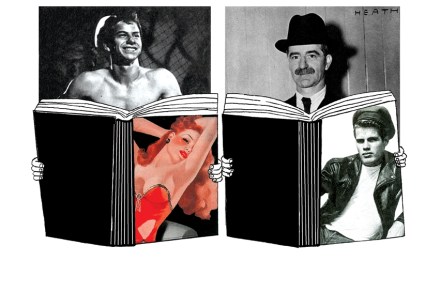Are explicit sex scenes OK?
Yes! Philip Hensher In April, I published a novel, King of the Badgers, about a series of events in a small town in Devon called Hanmouth. It is, in a way, about private and public lives, and the surprising and sometimes deplorable events that happen between people when their front doors are closed. It got very enthusiastic reviews: the Sunday Times said it was ‘a really good old-fashioned novel: the sort of thing George Eliot might have written if she was interested in gay orgies and abducted chavs’. Though it doesn’t make a point of obscenity, it does contain one scene in which a group of overweight gay men meet,











